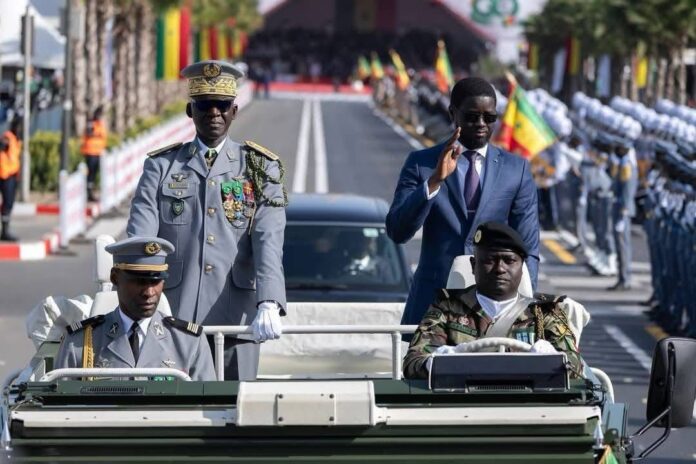A coalition of over 50 civil society organizations from Guinea-Bissau, led by groups such as the Popular Front (FRA Frente Popular) and the Space for Consultation of Civil Society Organizations (EdC), has issued a scathing open letter to Senegalese President Bassirou Diomaye Diakhar Faye. The letter, dated April 4, 2025, sharply criticizes Faye’s decision to invite former Guinea-Bissau President Umaro Sissoco Embaló as a special guest to Senegal’s 65th independence anniversary celebration, calling it an “affront to democracy” and a “betrayal” of the democratic ideals both nations share.
The groups argue that Embaló, whose presidential term officially ended on February 27, 2025, has lost all legitimacy to represent Guinea-Bissau under the country’s constitution. They accuse him of deliberately refusing to schedule presidential elections, plunging the nation into “economic and social chaos” and “institutional anarchy” in a bid to cling to power. The letter details a litany of alleged abuses under Embaló’s leadership, including the armed invasion of the Supreme Court, the “kidnapping” of the National People’s Assembly, and the use of security forces and militias to suppress dissent through violence, kidnappings, and torture.
“Umaro Sissoco Embaló’s dictatorial and autocratic regime is responsible for violence against more than three hundred citizens,” the letter states, warning that his actions pose a threat not only to Guinea-Bissau but to the stability of West Africa, including Senegal. The signatories also point to Embaló’s expulsion of an ECOWAS delegation sent to facilitate political dialogue, calling it a “clear affront” to regional democratic norms.
The civil society groups express dismay at Faye’s decision to honor Embaló, especially given the Senegalese leader’s own rise to power through a democratic election on March 24, 2024—an event celebrated as a triumph over authoritarianism. They note the irony that Faye, once a political prisoner himself, would extend such an invitation to a figure they describe as a “violent dictator without popular legitimacy.” The letter further condemns the use of a Senegalese presidential plane to transport Embaló to Dakar, interpreting it as an attempt to “whitewash the dictator’s image.”
“This gesture is a betrayal not only of the memory of dozens of young Senegalese who died in defense of democracy but also of all the peoples who saw in you a product of the struggle for freedom,” the letter asserts, referencing Faye’s reputation as a pan-Africanist leader.
The coalition demands that Faye reconsider his stance, urging him to refrain from legitimizing Embaló’s rule and to instead support Guinea-Bissau’s democratic aspirations. They warn that continued support for Embaló risks undermining the historically strong ties between Senegal and Guinea-Bissau, two nations bound by a “centuries-old history of struggle for freedom.”
In a list of resolutions, the groups unreservedly condemn the invitation, call for Senegal to uphold its responsibilities within ECOWAS to defend democratic principles, and reaffirm their commitment to fighting for democracy across Africa. The letter concludes with a rallying cry: “Long live democracy! Long live African unity! Long live popular sovereignty!”
As Senegal prepares to celebrate its independence, the controversy threatens to cast a shadow over the festivities, highlighting tensions between democratic ideals and regional diplomacy in West Africa.






